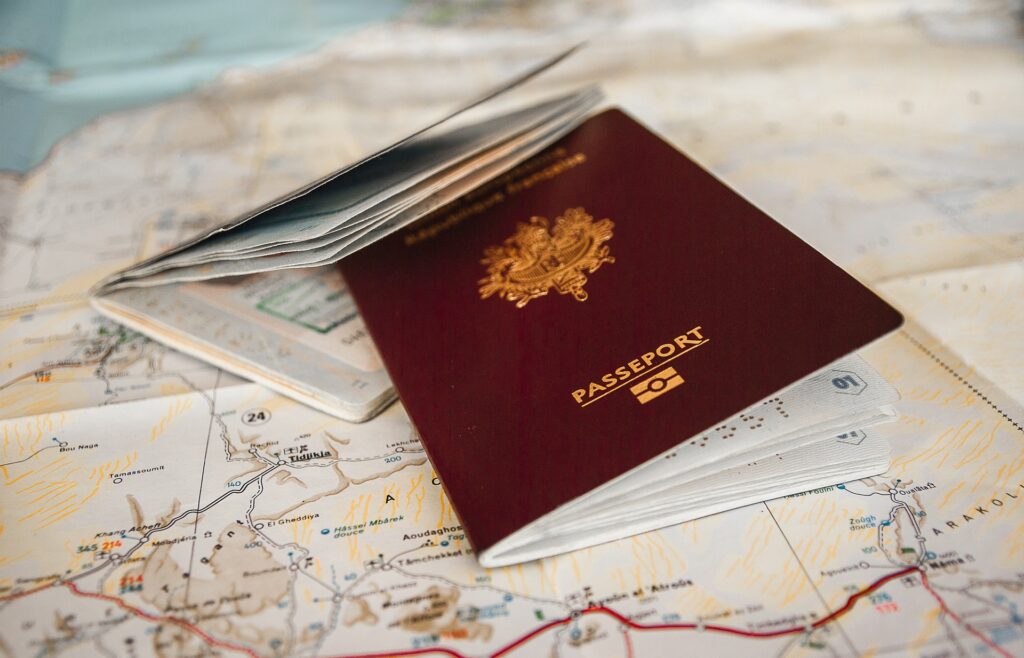Visa extensions for those unable to return to their home country and other temporary concessions for visa applicants.
Concessions remain in place for people who intended to leave the UK to return to a country or territory when their visa expired, but have not been able to do so due to Covid. If individuals have a visa, leave or ‘exceptional assurance’ that expires before 30 November 2023 they may request additional time to stay, known as ‘exceptional assurance’.
This is for individuals whose country of residence is red-listed or exceptional cases where they may be unable to return to a country or territory where that nation has closed their borders or where quarantine facilities are temporarily over-subscribed.
If you are granted ‘exceptional assurance’ it will act as a short-term protection against any adverse action or consequences after that person’s leave has expired. If the expired visa allowed the person to work, they may continue to do so during the period of their ‘exceptional assurance’. This is useful for employers as they can continue to employ such individuals for a longer period.
After 30 November 2022, exceptional assurance will not be available.
If an applicant intends to stay in the UK
In order to remain in the UK, applicants will need to apply for the relevant permission to stay. Where eligible, they can submit a permission to stay application form from within the UK.
They will need to meet the requirements of the route they’re applying for and pay the UK application fee. They cannot apply for a route for which there is no provision in the Immigration Rules for making an in-country application, such as T5 Youth Mobility Scheme, or Adult Dependant Relative.
The terms of their current permission will remain the same until their application is decided. If they are switching into work or study routes they may be able to commence work or study whilst their application is under consideration, depending on the terms of their current permission. Again this is useful for employers who may be able to continue employing an individual while their application is decided.
90 day visa vignette
The UK Government has confirmed that if an individual had a 90-day vignette that has subsequently expired, they must apply for a replacement by completing an online form. They are also required to resubmit their biometric data and pay £154 to replace the vignette.
It is strongly advised that an application for a new visa or a replacement of an expired vignette is only completed if the individual is confident that they can travel to the UK. The new vignette will only be valid for a period of 90 days, so if the individual cannot travel during this time, they may need to apply again to update the vignette.
If the individual has applied for a replacement vignette but is still waiting for a decision but no longer wants to travel, they should make a withdrawal request at the same Visa Application Centre that they applied from. This will release their passport back to them.
Employers can accept a vignette as proof of an individual’s right to work, but they must note the expiry date of the vignette and make sure they do a further right to work check once the individual has their biometric residence permit.
Concessions for health and social care workers
Front-line health and social care workers and their families whose visas expired between 1 April 2021 and 30 September 2021 eligible for a free extension. If this is the case, the dependents of health care workers could also get their visas extended for a year. The immigration health surcharge does not apply to health care workers or their dependents.
Previously, NHS staff could also work at any NHS hospital during the pandemic without notifying the Home Office, providing their sponsor could continue with their sponsor duties such as monitoring and reporting work activity. NHS staff could work as many hours as they wanted in any role, regardless of skill level, during the outbreak. The idea of the extension was to allow front line staff to focus fully on combating COVID-19 instead of worrying about their visas expiring or their restrictions.
The NHS concessions above ended on 4 October 2022, and sponsored employees are now no longer able to work at a workplace not specified in their Certificate of Sponsorship. Any change to an employee’s work location needs to be reported to the Home Office through the SMS within 10 working days. Furthermore, supplementary work for sponsored employees has now been limited to 20 hours per week, akin to the pre-pandemic era.
The Government has also lifted restrictions on the number of hours student doctors and nurses can work for the NHS to get more doctors and nurses on the frontline. There are also no limits on the number of hours migrant workers can work or volunteer for the NHS where it is their second job.
Finally, the government has confirmed that family members of frontline workers who die from COVID-19 will be offered indefinite leave to remain. On 20 May 2020, this was broadened to cover “NHS support staff and social care workers” as well.
Tier 1 Entrepreneurs
The Tier 1 (Entrepreneur) visa scheme can no longer be applied for. However, those who already have the visa may be able to apply for indefinite leave to remain, extend the visa, or apply for family members to join them.
Ordinarily, those with a Tier 1 Entrepreneur visa must employ at least 2 people for 12 consecutive months each as a condition of their visa. This rule has been relaxed where business has been disrupted due to COVID-19 and the 12-month period can now be made up of multiple jobs across different months but this must be equivalent to 2 full time jobs. Time spent on furlough will count towards the 12-month period provided staff were paid at least 80% of their normal pay. If the Tier 1 visa holder has not been able to employ staff for 12 months by the time their visa expires, they will be allowed to extend their stay for a further 2 years in order to do so, provided that:
- They have created at least 2 jobs by the date the application is made and
- They have been unable to employ staff for 12 months due to coronavirus
- This concession will apply to Tier 1 Entrepreneur applications made after 31 May 2020, providing that the employment relied on is disrupted due to COVID-19.
The new route for those seeking to set up or run a business in the UK is through an application for the Innovative visa or Start-up visa
Start-up visas
Previously, Start-up visa holders could apply for an extra 12 months leave to remain in the UK where business has been disrupted due to COVID, extending their leave beyond the usual 2 years. The endorsing body had to provide an endorsement letter before an application could be made, and they could only do so if they were satisfied the applicant has made sufficient progress against their business plan and that the business is still viable, taking into account the impact of the virus. However, applications for an additional year as a Start-up migrant under these arrangements will not be accepted after 30 September 2022.
Returning resident visa
If an individual has been outside the UK for more than 2 years due to covid restrictions and their indefinite leave to remain in the UK has lapsed on or after 24 January 2020, they can apply under the returning resident route to retain their indefinite leave to remain status.
This will be useful for employers, who may be able to continue employing those whose permission to work in the UK may otherwise have lapsed.
Right to work checks
From 1 October 2022, UK employers are no longer able to use the temporary Covid-adjusted right to work guidance. Employers are no-longer be able to ask their prospective employees to share a scanned photo or copy of their documents, and then confirm their identity over a video call.
For British and Irish citizens, this must be checked manually (i.e. a physical check), whilst for non-British citizens, the right to work must be assessed via an official online check an confirmed via the Home Office.
Other helpful guidance on right to work checks includes:
- Employer checking service, if a prospective or existing employee cannot provide any of the existing documents
- Right to work checks: an employer’s guide, as it is an offence to knowingly employ someone who does not have the right to work in the UK
- Right to work checks: an employer’s guide and the online right to work checking service
- Code of Practice for Employers: Avoiding Unlawful Discrimination while preventing illegal working, provides guidance to employers on ensuring no job applicants or employees are discriminated against if they struggle to show evidence of their right to work as a result of the impact of COVID-19.
Previously, employers did not need to carry out retrospective checks on those who had COVID-19 adjusted checks between 30 March 2020 and 5 April 2022 (inclusive). The adjustments to right to work checks introduced on 30 March 2020 as part of the response to COVID-19 ended on 30 September 2022.
Guidance for Skilled Worker sponsors
The Home Office has confirmed that it is waiving several requirements on sponsors in light of COVID-19. The full guidance can be found here. These concessions will be kept under review.
The Home Office has confirmed that it will not take enforcement action against sponsors who continue to employ sponsored employees who are absent from work without pay for more than 4 weeks due to the coronavirus. This will be kept under review.
Given the delays in visa applications, the Home Office allowed sponsored employees to start employment before their visa was issued provided the sponsor had assigned them a certificate of sponsorship before 19 January 2021 or where the employee was applying under the Health and Care visa (but only for certificates assigned to health and care workers before 4 October 2022). Applicants with a Certificate of Sponsorship assigned after this date cannot begin work until they have received their visa.
For sponsored employees who have been issued certificates after 19 January 2021, this concession no longer applies and employers must wait until the employee receives their visa before they can start work.
Sponsored employees can take more than 4 weeks of unpaid leave if that leave is due to coronavirus. Specific examples include illness, isolation, or travel restrictions. It may also include absences due to childcare responsibilities. These absences do not need to be reported but clear records should be kept.
As has been the case for many months, sponsors are not required to report home working to the Home Office but other changes in working arrangements must be reported as normal.
Please note that sponsors should take care not to treat their sponsored employees more or less favourably because of their visa status in response to these temporary alterations to the guidance.
Global Talent applicants
Global Talent applicants whose endorsement has expired because they have been unable to travel to the UK may still be eligible for a visa. Moreover, if the applicant has received an endorsement from an endorsing body but have not been able to apply for a visa within the 3-month deadline due to Covid-19 related reasons, they may still be eligible.
Temporary concessions that were implemented for Global Talent applicants undertaking COVID-19-related research have now ended.




